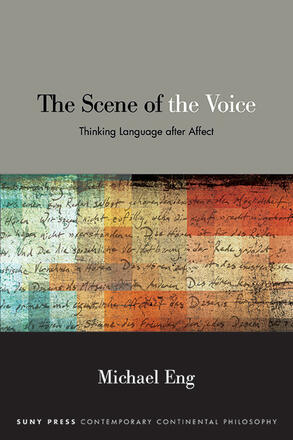
The Scene of the Voice
Thinking Language after Affect
Alternative formats available from:
Brings the figure of the voice and the problem of mimesis in Heidegger and post-Heideggerian continental thought to bear on the dismissal of language by the affective and aesthetic turns of contemporary critical theory.
Description
The recent turns to affect and aesthetics in the humanities and the interpretive social sciences have been productive for reflecting on the crucial role sensibility plays in the constitution of the social. However, these scholarly developments construct their interventions by dismissing the attention to language that was central to the linguistic and cultural turns of previous eras and by claiming that language is an obstacle to experiencing the reality of difference to which they maintain only sensibility can grant access. By analyzing the figure of the voice in the work of Martin Heidegger and the continental thinkers who follow him, The Scene of the Voice shows that the dismissal of language in favor of sensibility requires overlooking their common connection in the problem of mimesis. As this book ultimately argues, artificially separating language and sensibility results in a failure to encounter affect, the relation to difference affect is said to name, and the experience of thinking affect is taken to provoke.
Michael Eng is Assistant Professor of Philosophy at Appalachian State University.
Reviews
"Michael Eng explores with a striking breadth of coverage Heidegger's approach to language. Allowing the positions of Lacoue-Labarthe, Nancy, Blanchot, and Deleuze to unfold rather than pushing to decide disputes, he deftly demonstrates that his questions of 'voice' and 'scene' are fundamental to post-Heideggerian thought." — Christopher Fynsk, author of Last Steps: Maurice Blanchot's Exilic Writing